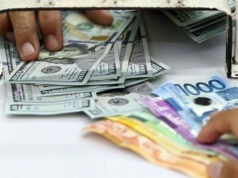How a trader from Hamburg started his business in the Philippines
By Denise A. Valdez
FOR someone hailing from a trading powerhouse such as Germany, starting a trading company in the Philippines during the 1970s may sound preposterous. The Philippine economy at that time was on a decline. But German trader Horst Kessler von Sprengeisen chose to invest in the country.
“[The Philippines] was always at the end of the list of all ASEAN (Association of Southeast Asian Nations) countries. So we wanted to grow, we were expected to grow,” Mr. Kessler said.
After spending eight years in the Philippines running a liaison office for German company K.D Feddersen Ueberseegesellschaft mbH (KDF), Mr. Kessler decided he was ready to run his own business.
“One morning I noticed that I know more people here. I have better connections here, better relations than I have in Germany. So eight years — it’s usually the time when one decides, ‘I must go home now or I might as well stay.’ So I stayed here,” he said.
He eventually married a Filipina and started a family. In 1978, 10 years since he arrived in the Philippines, Mr. Kessler opened Hamburg Trading Corp. (HTC).
It was pretty much a “one-man show” at the beginning, Mr. Kessler said. It was originally just him and his secretary, until later on one or two salesmen joined. But that was it for his thin manpower.
To make money, he finds a buyer and a seller, brings them together, and gets the supplier to pay him a commission. The payment he received was all the income of the company.
“It was very hard, the first years. But I was young. The stupidity and arrogance of youth helped me a lot,” Mr. Kessler recalled.
Forty years since its founding, HTC has grown to offer a huge range of products such as food ingredients, industrial chemicals, adhesives and woodworking components, laboratory products and refractories and industrial equipment. These products are imported from European countries, Brazil, United States and China.
Hailing from Hamburg, Germany, Mr. Kessler said he got his commercial etiquette from the rich trading history of his hometown. Hamburg was a member of the Hanseatic League, a trade association connecting rich cities all over Baltic Sea and the North Sea during the middle ages.

“We don’t cheat. We don’t make promises we can’t keep. We are people one can do business with. That is the Hanseatic ethics which is still held high in Hamburg,” Mr. Kessler said.
He named his company after Hamburg with the goal of upholding the same standard of professionalism. That is why it took him some adjusting to get used to working with Filipinos, who could be lax sometimes.
“Germans are tough, correct, precise, sometimes too serious. Whereas the Filipino is more emotional, likes to laugh, likes fun, is sometimes not so precise, sometimes makes promises which he already knows he cannot fulfill, but to please you he says, ‘Yes, I can do.’ One has to get used to it,” Mr. Kessler said.
But he emphasized that he “likes it very much” that the Philippines is a happy nation. He said that in Germany, one could be reported as a sexual offender for smiling at a stranger. While in the Philippines, an eye contact automatically rewards you with a smile.
Mr. Kessler noted that bureaucracy in doing business with the government is a problem, but said it was never something that upset him too much to make him want to return to Germany. “I feel that Philippines is my home now,” he said, adding that he is not 100% German anymore after being exposed to the Philippine culture.
Lenie A. Bermudez, who joined HTC in 1998 and is now its president, said Mr. Kessler taught his staff the value of having a “very high emotional intelligence.” She said she used to be very emotional in conducting business, but learned to address her emotions properly.
“I’m still emotional sometimes, but I learned to work without emotion from a German,” she jokingly said.
At 78, Mr. Kessler still works as the chairman of the company. Under the leadership of Ms. Bermudez, HTC expects to grow its all-Filipino employee base to 100 from the current 70 before the year ends.
The company is currently serving around 500 companies, including big multinational companies. In three years, it aims to triple its sales from the current growth rates of 30% to 40% by expanding its customer base.
Ms. Bermudez said having reputable suppliers like Cargill and Merck makes it easy for them to introduce HTC to target customers. HTC’s wide product line allow for them to tap a wide array of industries, thus opening more opportunities for profit.
Developments such as the establishment of a P400-million warehouse in Sta. Rosa, Laguna and the formation of a marketing department are some of the company’s efforts to reach its goals.
The 7,000-square meter building located in the Meridian Industrial Complex took two years to complete. Besides being a spacious administrative office, the property features the company’s storage facilities and a state-of-the-art demo kitchen.
“This is the ideal location for us. Sta. Rosa is developing very well, very fast. It is partially already like Makati,” Mr. Kessler said.
He boasts of using first-class building materials, equipment and machinery for the warehouse. It stores a tank holding 250,000 liters of water in case of fire, and has a generator big enough to power the whole establishment in case of brownout.
Mr. Kessler is confident on the future of HTC.
“Our staff is basically quite young. We have people who understand the situation — the ongoing change of business — better than old people do. I think we are going in the right direction,” he said.



